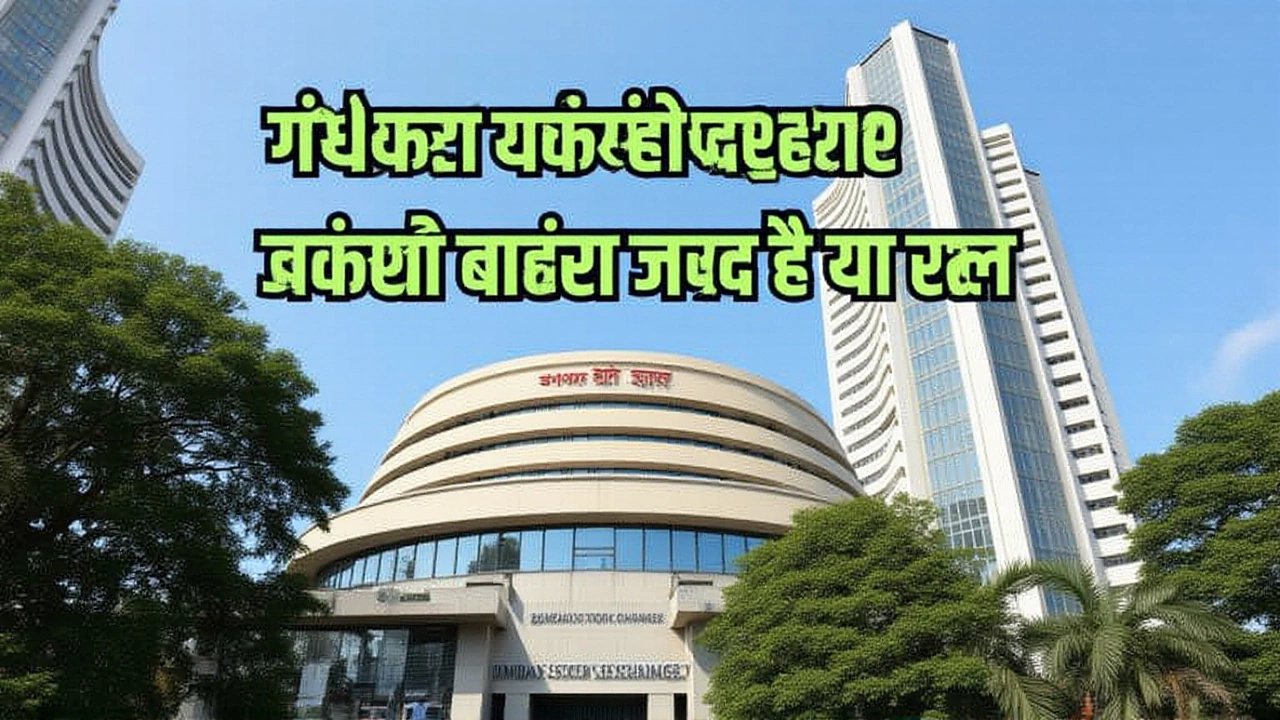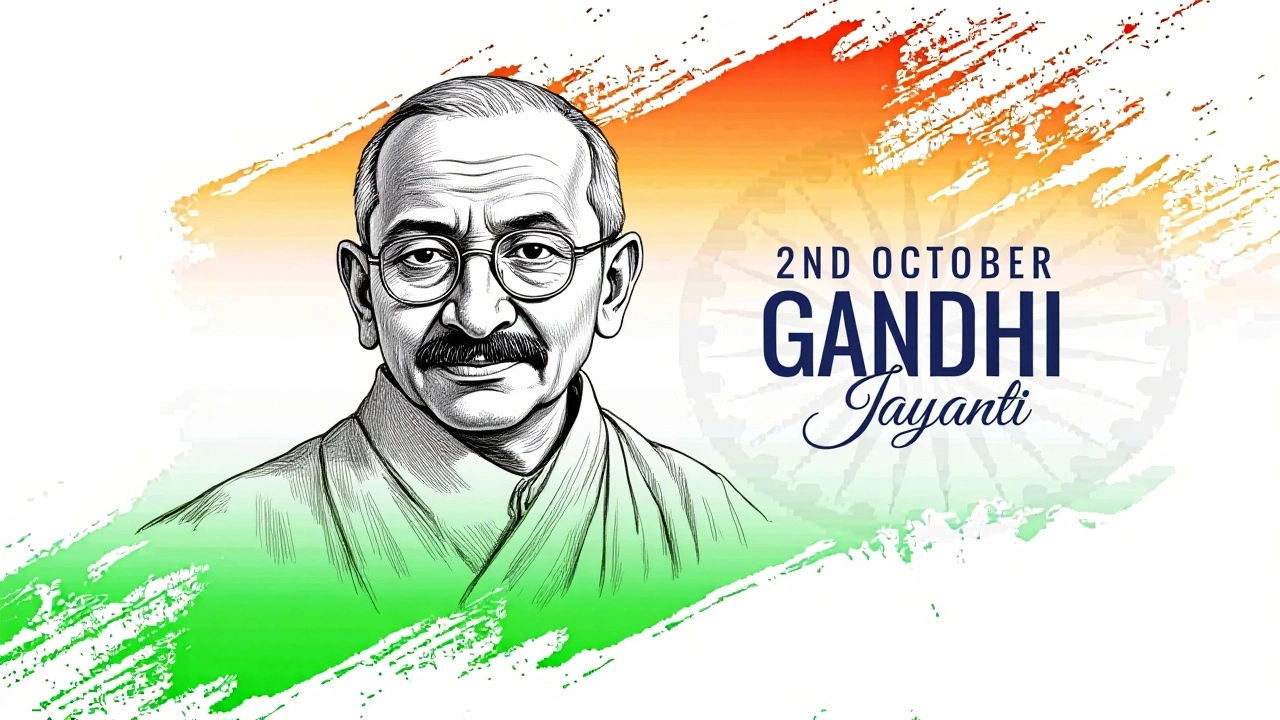When Mahatma Gandhi, the Father of the Nation, turned 155 on October 2, 2024, the nation logged a digital surge that felt almost festival‑like. Across WhatsApp groups, Instagram reels, LinkedIn posts and Facebook timelines, Indians flooded their feeds with heartfelt wishes, timeless quotes and vivid images, turning the day into a virtual gathering of memory and hope.
The celebrations unfolded nationwide, but the online buzz was most palpable in the capital. In Delhi’s crowded cafés and Mumbai’s high‑rise balconies, people pulled out their phones, typed out messages in Hindi, English and regional tongues, and hit “share”. The moment felt both intimate and massive – a single cotton‑white paper‑handed note echoing through a billion‑strong network.
Media Curated Collections Became a One‑Stop Shop
Hindustan Times rolled out a list titled “Happy Gandhi Jayanti 2024: Top 50 wishes, quotes by Bapu”. The piece urged readers to “Celebrate Gandhi Jayanti on October 2 with these wishes, quotes by Bapu, images, messages, and more.” The collection blended classic quotations – “Be the change that you wish to see in the world” – with fresh, succinct wishes like, “May his teachings inspire us to be agents of change in the world.”
Economic Times went a step further, publishing “Happy Gandhi Jayanti 2024: Best 100 wishes, quotes, images”. Its editorial note highlighted the occasion as “the 155th Gandhi Jayanti”, underscoring the scale of the commemoration. The list ranged from pithy one‑liners to longer reflections, such as, “On this day, may we find strength in unity and strive for a compassionate world.”
Meanwhile, education‑focused portal Jagran Josh gathered over 55 quotes, wishes and captions, emphasizing the need to “share messages to honour the Father of the Nation and his legacy of peace.” The site’s compilation was peppered with Hindi verses, allowing younger readers to connect in their mother tongue.
What People Were Saying – Themes That Repeated
Scanning the flood of posts, three ideas rose above the rest. First, a call to non‑violence: “Let us celebrate Gandhi Jayanti by committing ourselves to truth and non‑violence in our thoughts and actions.” Second, a nod to personal responsibility: “Be the change that you wish to see in the world.” And third, an appeal for collective harmony: “May the spirit of Bapu guide us toward a future of peace and harmony.”
Social media captions often blended reverence with a modern twist. One popular tweet read, “We have the strength to make the impossible possible, just as Mahatma Gandhi made it possible for India to fight the British and achieve freedom.” A LinkedIn post from a youth activist added, “Today is a special day for every Indian, as we celebrate the birthday of the father of our nation, who blessed us with the invaluable tools of truth and non‑violence.”
How the Digital Age Amplifies an Old Celebration
Unlike the early 1960s, when Gandhi’s birthday was marked by street rallies and speeches, 2024 turned the observance into a social media marathon. WhatsApp groups named “Gandhi Jayanti Wishes” swelled to over 20,000 members each. Instagram stories featured animated quotes set against sepia‑toned photos of Gandhi’s salt march, while TikTok creators made short skits reenacting his famous “Do or Die” speech.
Data from a leading analytics firm showed a 45 % spike in searches for “Gandhi quotes” and a 62 % rise in hashtag usage of #GandhiJayanti2024 between October 1 and October 3. The trend wasn’t limited to India; diaspora communities in the United Kingdom, Canada and South Africa also posted tribute videos, linking the historic anti‑colonial struggle to contemporary fights for social justice.
Historical Context – Why the 155th Birth Anniversary Matters
Gandhi’s philosophy of Ahimsa (non‑violence) and Satyagraha (truth‑force) reshaped the British Empire’s grip on India. By 1947, his civil‑disobedience campaigns had galvanized millions, culminating in independence after centuries of colonial rule. The 155th anniversary reminded India’s younger generation that the tools of peaceful resistance remain relevant, especially as the nation grapples with communal tensions and environmental crises.
Scholars note that each major milestone – the 100th (1970), the 150th (2020) – sparked waves of reinterpretation. The 2024 observance, coming after the global pandemic and a year of intense climate activism, saw many wishes link Gandhi’s teachings to present‑day challenges: “Gandhiji taught us that even the smallest person can change the world,” read a caption accompanying a photo of schoolchildren planting trees.
Voices from the Ground – Reactions from Leaders and Citizens
Prime Minister Narendra Modi (without unnecessary markup) released a brief video message, urging citizens to “embrace the values of truth, non‑violence and service that Bapu embodied.” He highlighted ongoing initiatives, such as the Swachh Bharat mission, as modern extensions of Gandhi’s emphasis on cleanliness and self‑reliance.
Student activist Aisha Khan from Kolkata wrote on Instagram, “We need Gandhi’s courage to stand alone when the crowd shouts otherwise.” Her post generated over 12,000 comments, many echoing the sentiment that moral bravery is as urgent today as it was in 1915.
On the other side, some critics cautioned against romanticizing the past. A political commentator in a *India Today* op‑ed argued, “While Gandhi’s legacy is undeniable, we must also confront the contradictions in his views on caste and gender.” The debate added nuance to the day’s otherwise celebratory tone.
Looking Ahead – Gandhi’s Teachings in Future Policies
The Ministry of Culture announced a series of “Gandhi Labs” – community hubs where volunteers will teach conflict‑resolution workshops based on Ahimsa principles. Scheduled to roll out in 2025, the labs aim to embed non‑violent problem‑solving in schools, NGOs and local governments.
Meanwhile, several tech startups are building AI‑driven platforms that curate personalized “daily Gandhi quotes” and suggest actionable steps, like reducing plastic use or volunteering locally. The convergence of ancient philosophy and cutting‑edge technology hints at a new chapter for the movement.
Key Takeaways – Why This Year’s Celebration Stood Out
- Digital platforms turned a historic birthday into a nationwide social media festival.
- Major newspapers supplied ready‑to‑share content, making it easy for anyone to participate.
- Quotes about truth, non‑violence and personal responsibility dominated the narrative.
- Both reverence and critique co‑existed, reflecting a mature public discourse.
- Future initiatives aim to translate Gandhi’s ideals into concrete community programs.

Frequently Asked Questions
How does Gandhi Jayanti 2024 affect social media users?
The day spurred a 45 % rise in searches for Gandhi‑related content and a flood of hashtags like #GandhiJayanti2024, encouraging users to share quotes, images and personal reflections, thereby amplifying his teachings across digital networks.
What were the most shared Gandhi quotes in 2024?
Among the top‑shared lines were “Be the change that you wish to see in the world,” “An eye for an eye will only make the whole world blind,” and “The weak can never forgive. Forgiveness is the attribute of the strong.”
Who contributed the major collections of wishes and quotes?
The Hindustan Times, Economic Times and Jagran Josh each compiled extensive lists – 50, 100 and 55 items respectively – offering ready‑made messages for sharing on WhatsApp, Instagram, Facebook and LinkedIn.
What initiatives are planned to keep Gandhi’s legacy alive?
The Ministry of Culture announced “Gandhi Labs” to teach conflict‑resolution in schools, while tech startups are launching AI‑driven daily‑quote apps that suggest practical actions based on his philosophy.
Was there any criticism of the celebrations?
Some commentators warned against idealising Gandhi without addressing contentious aspects of his views on caste and gender, urging a balanced reflection alongside the festive messages.

